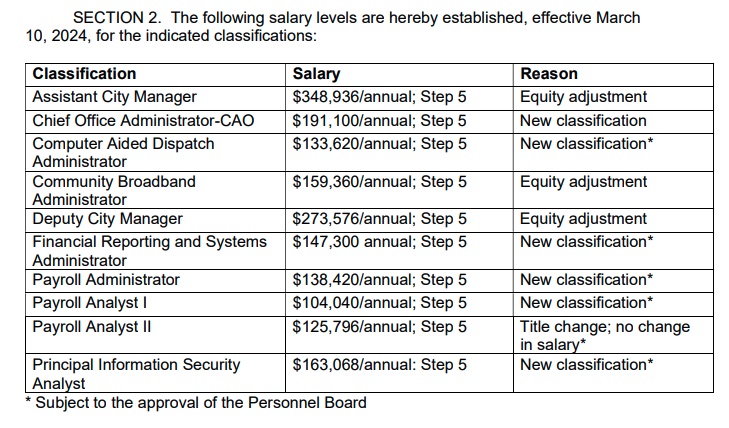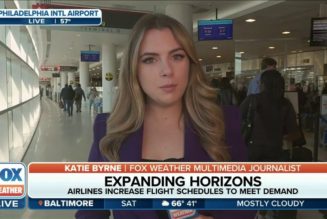Tuesday’s City Council meeting took an unexpected twist when the seemingly administrative task of approving the 2023-24 Midyear Budget was derailed over travel allowances for councilmembers.
A proposal to increase travel allowances caused a rift among councilmembers, resulting in a number of counter-proposals, re-votes, and general confusion before landing on a proposal that doesn’t technically increase travel spending but does increase the amount of money available to pay for travel.
The debate occurred at the tail end of an item that some suspected would be controversial, albeit for a different reason: salary increases for city staff. While the former issue was mostly glossed over, it did not go ignored among Santa Monica residents.
Ericka Lesley, Chair for the Rent Control Board and DTSM Inc., board member, expressed these concerns succinctly by saying, “Simply put … there should not be raises for anybody. We need to rehire some of the 400 that were laid off pre-Covid. We need more people in our housing services to relieve some of our overburdened and overwhelmed staff.”
While the city is projecting a balanced budget with modest increases overtime, reserves remain well below pre-pandemic levels and future challenges preclude any new spending.
From the outset, Santa Monica Finance Department Director Oscar Santiago stressed the uncertainty of the current economic state of affairs. “We should talk about the climate that we’re operating under, which continues to be volatile and uncertain. We’ve done our best to consider these external issues in our forecast.”
Santiago predicted tourism would return to pre-pandemic levels in under two years.
“Our tourism sector is recovering, but we have yet to see a strong return of business, group and international travel. Santa Monica Travel and Tourism projects stronger growth starting in mid 2024, and reaching peak 2019 levels by late 2025, early 2026,” he said.
Both the pandemic and recent legal cases, in particular the Eric Uller settlement, have significantly impacted the City’s budget, he said. “At the end of last fiscal year, we estimated the General Fund has lost over $170 million in revenues due to the pandemic. During this time, the city also paid over $229.8 million in settlements of sexual abuse claims,” Santiago said.
Eventually, Councilmember Oscar de la Torre brought the subject of discussion back around to the issue of salaries asking, “[About] the resolution regarding the salary rates and the new classifications, we got some emails, residents concerned that some of these adjustments were potentially excessive, and I wanted to just clarify that our … organization [is] competitive?”
The only cities that Santiago could point to were West Hollywood and Beverly Hills, which he claimed were comparable. And that was the last mention of the matter.

Councilmember Gleam Davis made a motion to move the item and approve the FY 23-24 budget with one small, but significant amendment.
“One of the recommendations was that you increase the council travel budget by $14,000, which would be $2,000 per council member,” Davis said, adding, “I propose that instead of increasing the travel budget by $14,000, we put that $14,000 back into the council discretionary fund, add $1,000 to it and give $5,000 to each Business Improvement Districts (BIDs) for them to do community building and promote local business.”
Chaos ensued and the dais was divided into two distinct camps with neither side wanting to give an inch. Four councilmembers (Christine Parra, Phil Brock, Lana Negrete and de la Torre) defended the increase to travel budgets while Davis, Jesse Zwick and Caroline Torosis voted to cut it.
A financial change relating to a budgetary item requires a supermajority of at least five votes to pass. There were several variations on the vote all of which again resulted in deadlock along the same lines and Council remained paralyzed at 4-3 against removing the proposed travel budget increase.
Reiterating her point, Davis said, “As we all know, we had a robust discussion about our travel budget before the fiscal year began. And we all know what our travel budget was. Every time we spend a penny out of our travel budget, we all have these sheets that tell us how much money we have left.
Davis was alluding to an incident last year, when Brock and De la Torre asked for additional travel expenses for the year. In the City Council meeting of July 25, 2023, they asked for unused funds from the previous year’s travel budget to be applied to any Councilmember who had already exceeded that year’s travel budgets. Needless to say, this quickly became a political issue, since the matter had never arisen before.
“I just don’t know why we would increase [that] budget, when we could use the money for other things, whether it’s neighborhood groups [or] sending more kids [to events] I think the last thing we need to do is give our each of ourselves an additional $2,000 to fly around, or go to wherever it is we think we want to go to. I don’t think that’s a good expenditure,” said Davis.
With the clock creeping towards midnight, Zwick made a new motion to put all $15,000 in the discretionary fund and decide where it goes at a later date. The motion passed unanimously 7-0.
While assigning the money to the discretionary fund took five votes, it will only require a simple majority of four votes to decide how the money is spent. The funds are not earmarked for any specific project and can be used for any purpose, including paying for travel.









